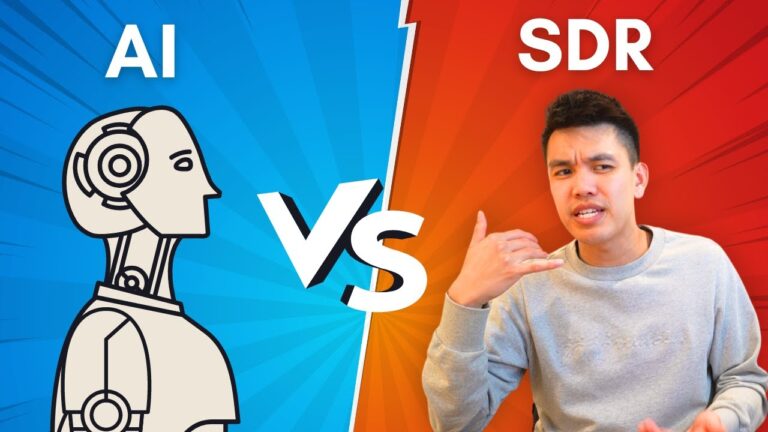The landscape of the sales industry is continually evolving, and with the advent of advanced technologies, particularly Artificial Intelligence (AI), a pertinent question arises: Can AI replace Sales Development Representatives (SDRs)?
This question is more relevant than ever, as AI continues to make significant strides in various business domains.
The Growing Role of AI in Sales Operations

AI’s integration into sales operations has been transformative, offering tools and solutions that redefine traditional practices. These AI-driven systems can analyze large data sets to identify potential leads, predict customer behavior, and even suggest effective sales strategies.
The efficiency and precision brought by these tools are unparalleled, significantly enhancing the ability to target and engage potential customers effectively.
The role of AI in completely replacing SDRs is a complex one. While AI excels in handling data-driven tasks and providing analytical insights, the human element in sales—such as relationship-building, empathy, and complex negotiation—remains crucial. The interpersonal skills that SDRs bring to the table are not easily replicated by AI, indicating that a hybrid model might be the most effective approach for the future.
Complementary Forces
The integration of AI in sales should be seen as complementary rather than substitutionary. AI can take over repetitive, time-consuming tasks like initial lead qualification and data entry, allowing SDRs to focus on more nuanced aspects of the sales process.
This collaboration between AI tools and human representatives can lead to a more efficient and effective sales strategy, where AI provides the data-driven insights and SDRs leverage their interpersonal skills to build and maintain relationships.
Incorporating an AI agent as assistant rather than replacements can significantly benefit SDRs. These agents can manage schedules, set reminders for follow-ups, and provide real-time data insights, enhancing the productivity and effectiveness of SDR teams. This synergy allows SDRs to concentrate on developing strategies and engaging in high-value interactions that require a personal touch.
Challenges and Considerations

The potential of AI to replace SDRs isn’t without challenges. One of the primary considerations is the level of AI sophistication needed to handle complex sales tasks. While AI is rapidly advancing, its ability to fully understand and respond to nuanced human emotions and complex scenarios in sales conversations is still developing.
Moreover, the integration of AI into sales teams requires significant investment, both financially and in terms of training. Businesses must ensure that their staff is equipped to work alongside AI tools effectively. There’s also a need to address concerns related to job displacement and redefining roles within sales teams to accommodate AI technologies.
Closing Thoughts
It’s more than clear that AI will play an increasingly significant role. However, it’s unlikely to completely replace SDRs in the foreseeable future. Instead, the most effective sales strategies will likely involve a blend of AI efficiency and human empathy.
Businesses should focus on leveraging AI to enhance the capabilities of their sales teams, not replace them. This approach not only maximizes efficiency and productivity but also maintains the essential human element in sales.
As AI technology continues to evolve, its role in sales will undoubtedly expand, but it will complement rather than substitute the valuable skills that human SDRs bring to the table.

